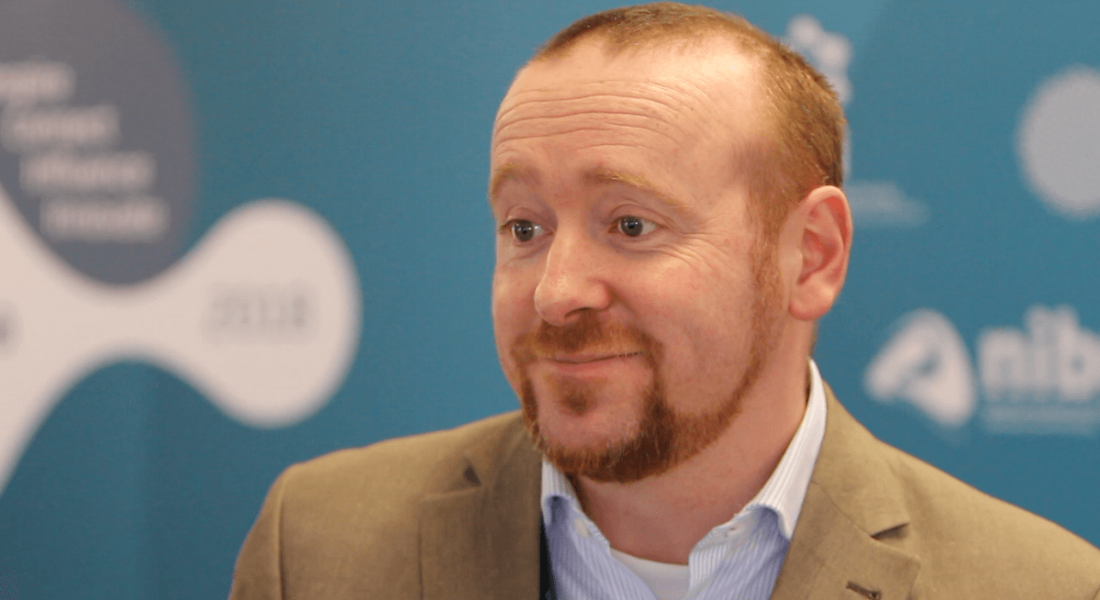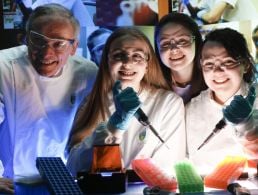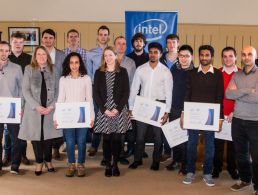As changes occur in the life sciences and biopharma sectors, so too do careers within the industry. Accenture’s Barry Heavey examines the trends coming down the line for those working in biopharma.
In January 2018, Amazon, Berkshire Hathaway and JPMorgan Chase announced their intent to form an independent company to improve their workers’ healthcare.
This initiative could have a far-reaching impact on the medical, insurance and biopharmaceutical industries in the US and globally.
The disruption on the horizon for the healthcare industry – from market dynamics, rapidly accelerating research into human disease and exponential developments in technology – will mean that traditional roles in the biopharma industry will likely change radically and lead to more blurring of the lines between human disciplines, and between man and machine.
Market forces driving disruption
According to the Organisation for Economic Cooperation and Development, $3.2trn was spent on healthcare in the US in 2016 – by far the highest spend of any country in both absolute terms, on per capita basis or as a percentage of GDP.
Approximately 150m people in the US obtain their health insurance from their employer, and several attempts have been made by major employers in the US to control the cost of healthcare provision for their employees.
The alliance of Amazon, Berkshire Hathaway and JPMorgan Chase is focused on lowering the cost of healthcare for their employees (more than 1m people across the three companies). Part of their strategy is reportedly to utilise advanced data analytics along with other technologies to better understand consumer choices in healthcare and simplify the care pathway.
The announcement had an immediately negative impact on the share price of major health insurers in the US and, if it is successful, it could be the start of significant disruption in the US healthcare market, which could have implications globally.
Since then, Apple announced the launch of group health clinics called AC Wellness, which will provide Apple employees and their families with ‘concierge-like’ healthcare services.
Amazon also announced in February that it will partner with the pharmaceutical manufacturer Perrigo to market a line of 60 over-the-counter medications (branded as Basic Care) in areas such as pain relief and allergy treatment. The line of products has been priced aggressively on the Amazon marketplace to undercut many other generic versions of the same medicines.
The collaborative approach that Amazon is taking is a prime example of the ecosystem trend we reported on in Accenture Life Sciences Technology Vision 2017, where 90pc of executives from biopharma companies surveyed indicated that it would be critical to the success of their business to engage in ecosystems with digital partners.
Other recent deals (December 2017) saw the US insurer United Health acquire a network of about 300 health clinics from DaVita Inc for $4.9bn, and US pharmacy giant CVS acquired the health insurer Aetna for $69bn, following more than seven years of close partnership.
These organisations will combine actuarial assessment of insurance risks, pharmacoeconomic assessment of the benefit of specific treatments, pharmacy dispensing, nursing and retail.
Leading Accenture’s global life sciences practice is Anne O’Riordan, a graduate of biotechnology from Dublin City University. A Cork native, she now lives in Hong Kong and has spent her career in Accenture analysing trends in healthcare in the US, EU and Asia, and advising global clients on how they can devise and implement strategies to respond to these trends.
In her book published last year, Healthcare Disrupted, she maintains there is a need for fundamental change in the healthcare industry as a result of the pressures of growing healthcare costs, the increasing role of the patient as a consumer, omni-accessible and persistent digital channels for communication, and the availability of real-world patient data for both research and commercialisation.
It would appear that tech companies such as Amazon are starting to drive this fundamental change from outside the industry.
Research developments driving disruption
Haemophilia A is a genetic disorder caused by a missing or defective blood clotting protein known as factor VIII, which can lead to excessive bleeding after an injury. It can be managed by regular injections (two to three per week) of biologics drugs, costing up $700,000 per patient per annum in the US.
In December 2017, US company BioMarin – which has manufacturing and commercial sites in Ireland – announced positive results of a new gene therapy that has the potential to be a once-only treatment for haemophilia A.
The CEO of BioMarin, Jean-Jacques Bienaimé, said: “The cure word is a big world, but I would say the data we just reported … in December is extremely encouraging.”
Research and development in biology is uncovering new insights into disease, and radical new treatment modalities such as gene therapy will radically disrupt the industry.
How would a company price a treatment that provides a ‘cure’ for a chronic disease that costs up to $700,000 a year to manage? How will payers pay? How will competitors who have massive investment in manufacturing capacity and commercial channels for the older treatments respond?
Technology and data trends driving disruption
Accenture’s perspective is that the healthcare and life sciences industry is at a tipping point, where technology is driving change. The cloud, analytics and digital medical solutions are no longer distant opportunities for life sciences companies to consider pursuing in the future; they’re an integral part of the current healthcare landscape, underpinning every aspect of the industry. Life sciences companies that want to stay in the race need to re-examine their business models and value chain, and quickly.
They need to be more customer-centric (more engaged with patients, healthcare providers and payers) and focus on holistic and integrated approaches. A therapeutic approach alone is unlikely going to treat a disease without strong engagement by the patient and a combination of additional support from both physicians and caregivers.
Digital tools are enabling in this space because they facilitate the real-world engagement with data and insights that are critical in providing hyper-personalised combinations of products and support services to the individual patient to maximise outcomes.
Impact on careers
In 2016, the World Economic Forum predicted that by 2020, more than a third of the desired skillsets of most jobs will comprise skills not yet considered crucial today.
Healthcare and life sciences are industries that, while full of innovation, have also proven stubbornly resistant to change, primarily due to their highly regulated natures. All that may be about to change, however, as these market drivers, research developments and technological developments converge to radically alter the industry and the career opportunities and pathways in fields such as insurance, pharmacy, nursing, medicine, sales and marketing, and manufacturing.
They will likely also open up additional opportunities for people with technology or data science backgrounds to work in healthcare and life sciences, developing IT systems and applications that traverse the blurred lines between disciplines, and automate routine tasks.
Data will be the key commodity, and significant opportunities will exist for people who have the skills to work with secure datasets and artificial intelligence (AI) tools to improve decision-making through analysis, visualisation and interpretation of multiparametric data on patient symptoms, behaviours, preferences, availability, cost, and efficacy and safety of treatment products and services.
Much focus is on how AI and robotics may replace humans in employment in the coming decades. However, more focus can be placed on the opportunities for new roles at the human-machine interface, where humans enable machines (through training, explaining and sustaining) and where machines augment humans (by amplifying, interacting and embodying).
Accenture research has found that 82pc of employees say they expect digital to transform their work in the next three years. Are you ready?
By Barry Heavey
Barry Heavey is the life sciences practice lead at Accenture.
Updated, 11.55am, 24 April 2018: This article was updated to correct a mistaken figure with reference to US healthcare spend for 2016.




